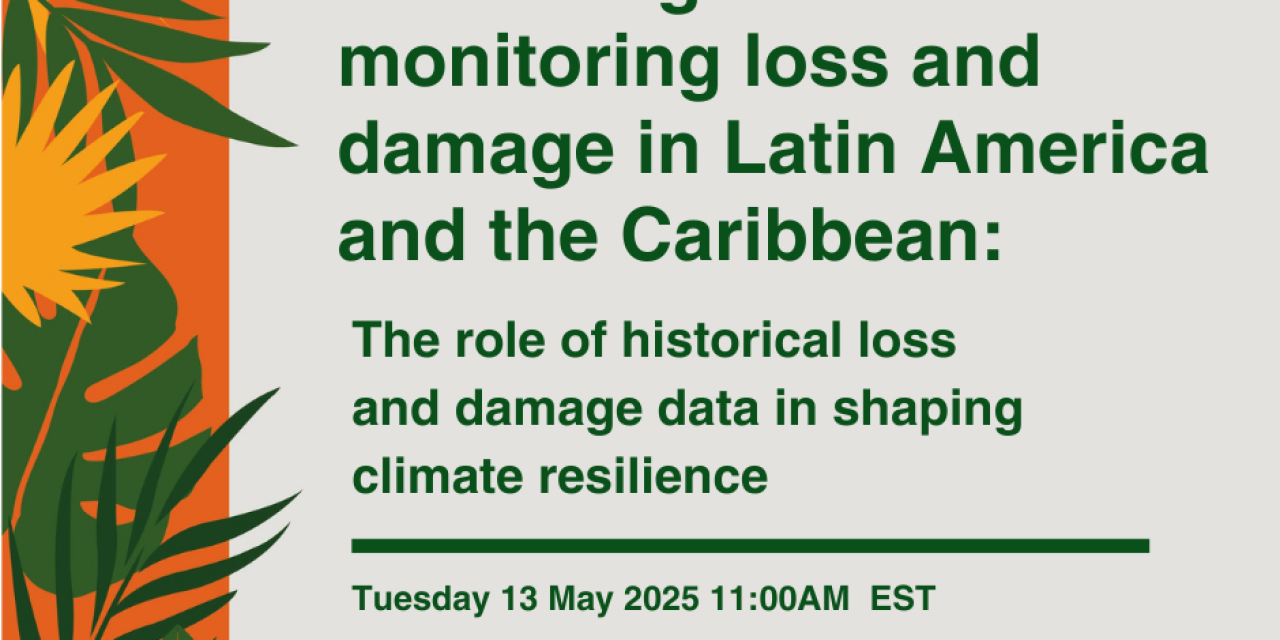Latin America and the Caribbean is the second most disaster-prone region globally, experiencing over 2,300 disasters between 2000 and 2024, causing over 320 million people affected. According to probabilistic risk estimates for multiple hazards and sectors, the average annual loss for the region has been estimated at $58 billion (CDRI, 2023).
As the region prepares for COP30, averting, minimizing and addressing loss and damage is central to climate negotiations, and historical data plays a crucial role in this process. Collecting and analyzing historical data on disaster losses—both economic and non-economic, as well as due to slow-onset and sudden-onset events—in a systematic manner is essential to support robust policy-making at both national and local levels. Such data has the potential to inform with evidence the UNFCCC’s loss and damage mechanisms, negotiations, and decisions.
This webinar will provide an opportunity to share ongoing efforts, challenges, and enhanced tools like the Disaster Tracking System (DTS), that can support countries in gathering and analyzing hazardous events and related disaster losses and damages. This aligns with the preparations for COP30, where advancing the loss and damage agenda will be a key focus particularly with regards to the start-up phase of the recently established Fund for Responding to Loss and Damage.
Objectives:
-
To facilitate a discussion on existing challenges and gaps in disaster loss and damage data and explore strategies for improving data quality (including a proper disaggregation), governance, and accessibility to better support global and regional loss and damage efforts.
-
To present enhanced tools like the Disaster Tracking System (DTS), jointly developed by UNDRR, WMO and UNDP, that can support countries in gathering comprehensive disaster data, including slow-onset and sudden-onset events, and helps monitor losses (economic and non-economic), and demonstrate how these tools can strengthen disaster risk reduction and climate adaptation strategies.
